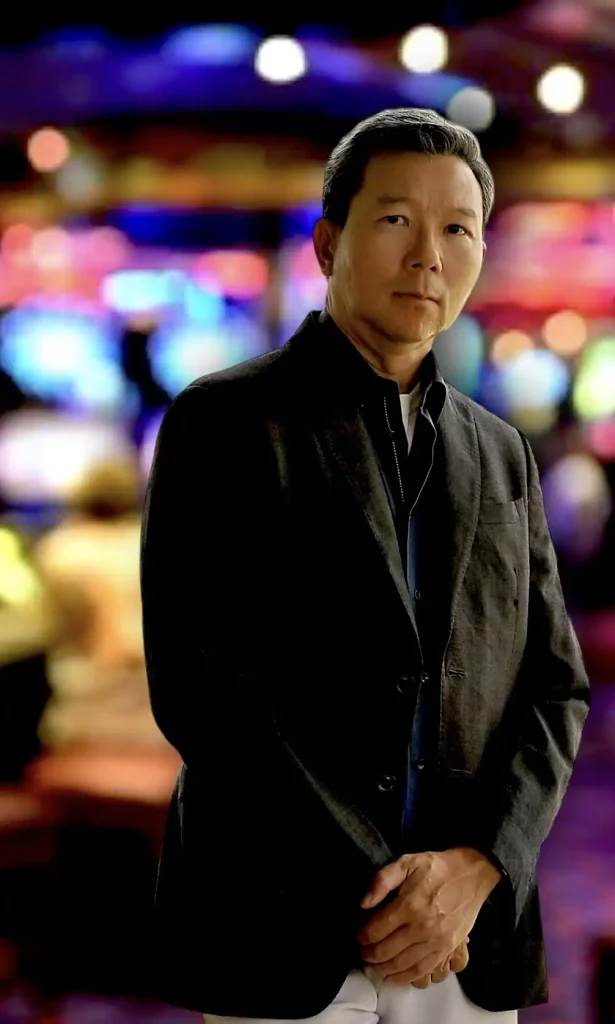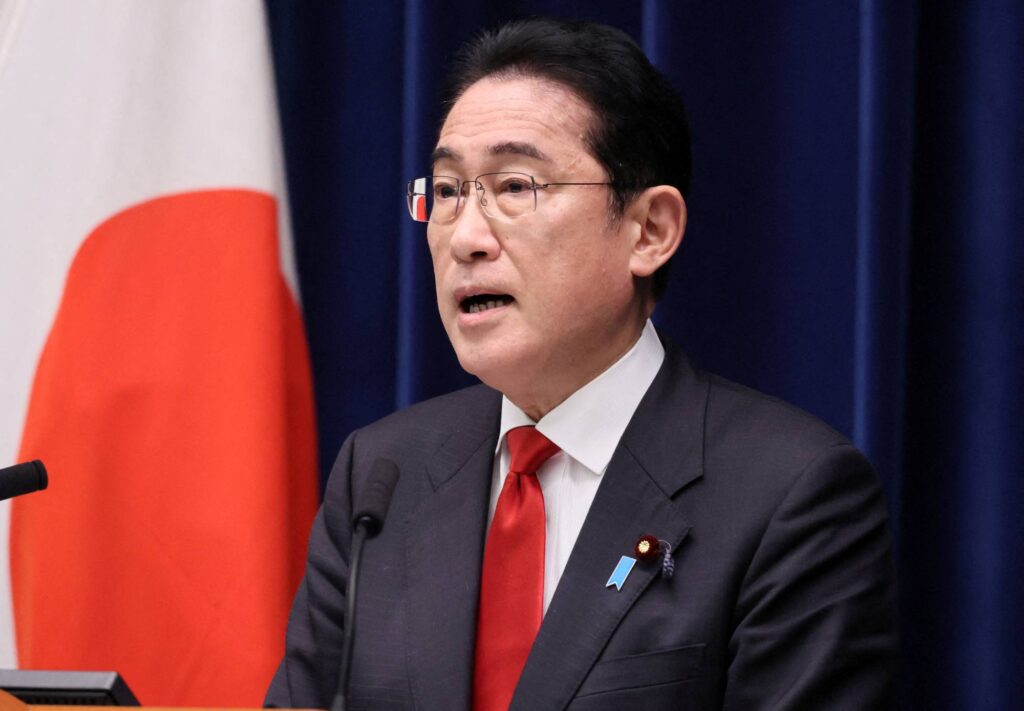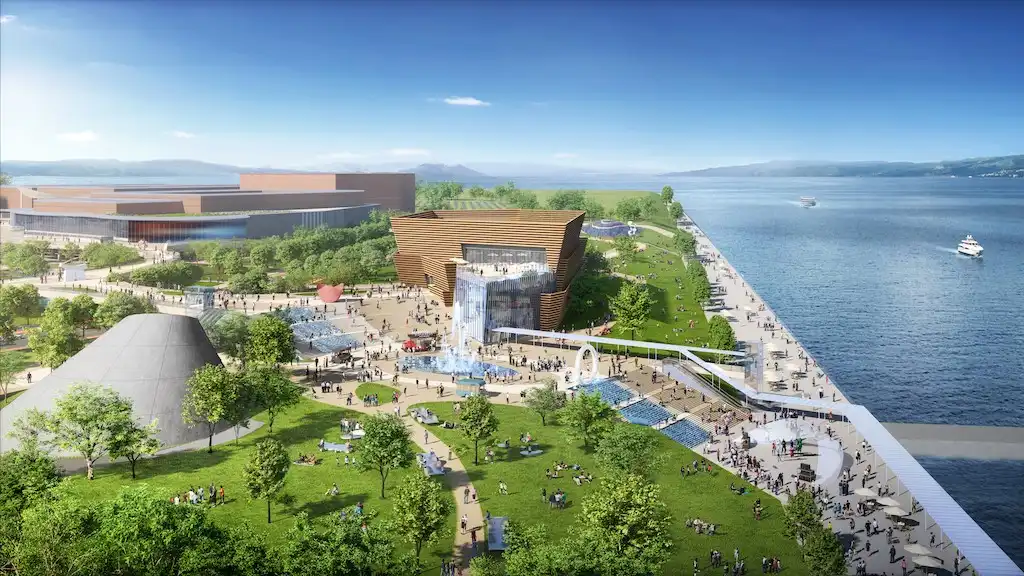A broken record. This is what it feels like as I put pen to paper for the umpteenth time to add to the long chronicles of the advent of integrated resorts in Japan. The first legal casino is set to open in the western Kansai region of Japan in 2030. Yet, fate has been the most fickle of friends in the Japanese IR story where the only constant is change, and every step seems to be into the great unknown.

The path to casino legislation in Japan paved a script weighed on a central theme of mania characterized by dizzying bouts of ups and downs where optimism and exhilaration intersperse with bewilderment and dismay. It has pushed the most tenacious among those who kept steadfast to the course over two decades to get on the brink of being committed to the looney bin of the inscrutable.
Autumn’s kaleidoscope of colors is fading into a carpet of brown. November has come, and the saying goes that winter is beginning to sharpen its claw, but the season still resembles a dull knife that couldn’t cut through butter for the Japanese IR industry. More than 200 days have passed since the government approved the plans for an integrated resort in Osaka.
Still, the only other application submitted by Nagasaki Prefecture remains in a purgatorial state with no decision in sight. The combination of the second-largest municipality by GDP in the country and one of the world’s biggest casino and entertainment brands barely scraped through by the skin of the famed lion’s teeth.
On that yardstick, the odds are looking stacked for the coastal city of Sasebo in a prefecture ranked a lowly 20th by the Japan National Tourism Organization in terms of annual visitor arrivals.
The only recent newsworthy mention of Nagasaki Prefecture was a House of Representatives by-election for its No. 4 District seat last month, which the ruling LDP retained by a thin margin. Any rays of hope for an inspiring political victory that might augment the chance of Nagasaki’s IR approval dissipated with the insipid election results.
The Nagasaki IR bid is a euphemism for a rock and a hard place for the Japanese government. Granting a license to a lesser-known city is to affirm the verdict of how far the star has fallen for the widely touted potential of the Japanese IR industry. Denying it darkens the pall of gloom over its lackluster IR bidding contest, which had only garnered two proposals for three available IR licenses.
The choice was thus one of a lack thereof, to procrastinate on the fate of Nagasaki, in the logic that a no-win path is at least better than a lose-lose scenario in making a decision.
Even the executives of the MGM-ORIX consortium are not quite popping the champagne despite the official endorsement of its IR implementation plan and schedule two months ago. The pace thus far has been painfully pedestrian, and not a sod can be turned on the IR site until ground reparation works are completed, and the site is certified ready for development, which currently will be in 2025 at the earliest.
An adjacent land plot is mired in delays and soaring construction costs that threaten to delay the Osaka World Expo which had seen Mexico and Estonia withdrawing from the event this week. If so, it will be consecutive postponements for Japan hosting a global event after the Tokyo Olympics were held belatedly in 2021 due to the COVID-19 pandemic.
It is another deja vu moment for the government as the cost to host the Expo soared to twice its original budget as it did for the Olympics. A “Get out of jail free” clause for the IR consortium in their contract with the Osaka government has further eroded confidence among the Japanese public.

The fact that the rudder for the IR legislation is always steered by macro-political winds of change offers scant chances for some light at the end of the tunnel. Prime Minister Fumio Kishida and his Cabinet are polling at historic lows despite no major missteps. But the lack of any significant achievements under his watch and his “new capitalism” economic policy failing to ignite has brought the hawks within his own party circling closer as his tenure comes up in ten months’ time.
Political headwinds for the prime minister mean the Japanese IR momentum stagnates, not that it had made much progress anyway as integrated resorts were never a pet policy for Kishida. It was the personal mission for the late Shinzo Abe and his wingman, Yoshihide Suga, and while Kishida wasn’t opposed to it, he was at most ambivalent in his support for the IR Law.
Old guard
All but Suga remained alive among the four main stalwarts for Japanese integrated resorts in the echelons of the political establishment. Former Tokyo governor Shintaro Ishihara passed away early last year, while Abe was tragically killed that summer. Ishihara was the first to fan the flame for legalized casinos in Japan, and Abe had taken the law across the finishing line.
However, it was veteran LDP lawmaker Hiroyuki Hosoda who assiduously stoked the coals through the years. The former Chief Cabinet Secretary and House Speaker died suddenly on November 10th, shortly after relinquishing the latter post and effectively leaving the biggest void among IR advocates in the top leadership. With Suga’s wings clipped by Prime Minister Kishida, the uncertainty prevailing over the fate of the remaining two IR licenses becomes even more clouded.
What about the other proponents among the original vanguard of lawmakers? Takeshi Iwaya, then chairman of the bipartisan parliamentary IR GIREN who had most engaged the business community, was rewarded with the Defense Minister portfolio three months after the IR Implementation Law was passed in both chambers of the Diet.
He had labored for his lucre and moved on; these days, Iwaya is again chairing another bipartisan caucus in his new quest to advocate LGBT rights in Japan.
Along with Iwaya, Koichi Hagiuda and Yasutoshi Nishimura round up the familiar legislative faces during the passage of the law. All three were acolytes of Hosoda in the largest faction within the LDP.
Both Hagiuda and Nishimura were bequeathed with various ministerial posts after casinos were made lawful and closed the chapter on the IR agenda, especially with Hosoda gone. Hagiuda’s star had risen after some early hiccups in his political career, and the former blue-eyed boy of Shinzo Abe now occupies one of the top four executive positions in the LDP.
The policy chief post is often seen as a stepping stone to the party presidency, which opens the possibility for Hagiuda to become prime minister down the road. That may raise optimism for a Tokyo integrated resort in the future, as Hagiuda had unabashedly previously supported the idea of a casino in the capital.
For now, he has to bide his time because the LDP Seiwa faction is too fractured to impose its collective weight on the party. Hagiuda and Nishimura are part of a five-member leadership council overseeing the faction after sub-factions failed to agree on nominating a new faction leader after the death of Shinzo Abe.
In another development, the five-term mayor of Tomakomai City, Hirofumi Iwakura, is under intensive care after collapsing at Incheon Airport while on an official trip to Korea on November 7th. The affable mayor has been the one-man-army carrying the torch to bring an integrated resort to Hokkaido.
The northern prefecture is touted as a favorite if the remaining IR licenses were to be re-tendered out, but time is not on their side as Iwakura’s mayoral term is set to end in 2026, and his age and now health suggest he might not possibly seek reelection, which would then close the door on hopes for an integrated resort in Tomakomai.
In light of these circumstances, it is anticipated that inertia will endure in Japan until a favorable shift occurs in the political landscape for the ruling LDP party. Any substantial change is contingent upon Prime Minister Kishida calling a snap election, which currently seems unlikely, or until the LDP leadership elections take place in September next year.











